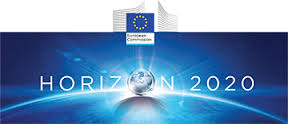Partial association of Switzerland to Horizon 2020: What does it mean for start-ups?

Switzerland and the EU have found an agreement for a so-called partial association to Horizon 2020. This however does not improve the situation for SME and start-ups. Startupticker.ch provides an overview for start-ups.
In response to the result of the vote on mass immigration held on 9 February 2014, the European Commission had suspended negotiations on Switzerland’s association to the Horizon 2020 package and Switzerland now has the status of a third country. This implied some severe restrictions and limitations for Swiss participations in Horizon 2020. The Federal Administration informed on 12 September 2014 that an agreement was found for a so-called partial association of Switzerland to Horizon 2020.
For the second and third pillar Horizon 2020 calls, which are interesting for SME and start-ups, Switzerland remains a third country entity. In these programme areas Swiss partners can still join European collaborative projects, however they will not be entitled to any direct funding from the EU for their part. The State Secretariat for Education, Research and Innovation (SERI) will provide direct funding to researchers in Switzerland, whose participation in collaborative projects under Horizon 2020 are not funded by the European Commission. SERI will provide information on the necessary procedures from November 2014 on the www.h2020.ch website.
For all calls for projects under the second and third pillars of Horizon 2020 (Industrial Leadership and Societal Challenges), Swiss applicants are considered as participants from a third country. This means that Swiss researchers in these programme areas can submit project applications along with European partners and can also coordinate them. The Swiss part of the project will also undergo regular evaluation from Brussels. However, despite the changed circumstances SERI strongly recommends that project partners from Switzerland (including businesses and SMEs in particular) join international consortia so as to be able to participate in calls in the second and third pillars.
In planning a project submission, Switzerland's third country status should be taken into account as follows:
- An application should respect the rule regarding the minimum number of consortium partners from 3 institutions from 3 different EU member states or associated states (not including Switzerland).
- According to the conditions for participation in Horizon 2020, projects can also be coordinated by researchers from third countries as long as they have their own funding which also covers the coordination costs. Swiss research institutions can therefore retain their coordinator role. It may however be worthwhile checking in the consortium whether another institution in an EU member state or associated state would be willing to assume that role.
- Swiss SME and start-ups cannot get funding and support under the new SME instrument of Horizon 2020
The Federal Council decided on 25 June 2014 that researchers and institutions in Switzerland that are involved in Horizon 2020 collaborative projects approved by the European Commission would be funded directly by the Confederation. Switzerland participated in a similar project-specific manner in the framework programme from 1992-2004. On 12 September 2014 the Federal Council approved the revised Ordinance on Measures for Swiss Participation in the European Union Framework Programmes in the field of Research and Innovation. This will come into force on 1 October 2014, providing the federal government with the legal basis for the direct funding of Swiss project partners in Horizon 2020 projects ("project-specific participation"). Swiss project partners are recommended to keep the overall budget of their collaborative project within the financial limits approved by the EU (including the Swiss contribution, even if this is not funded by the EU).
Apart from the support under Horizon 2020 there are numerous other financing options through other European research programmes. An overview can be found in our article about those programmes from last week.
More information can be found on the website of Euresearch.























































Please login or sign up to comment.
Commenting guidelines